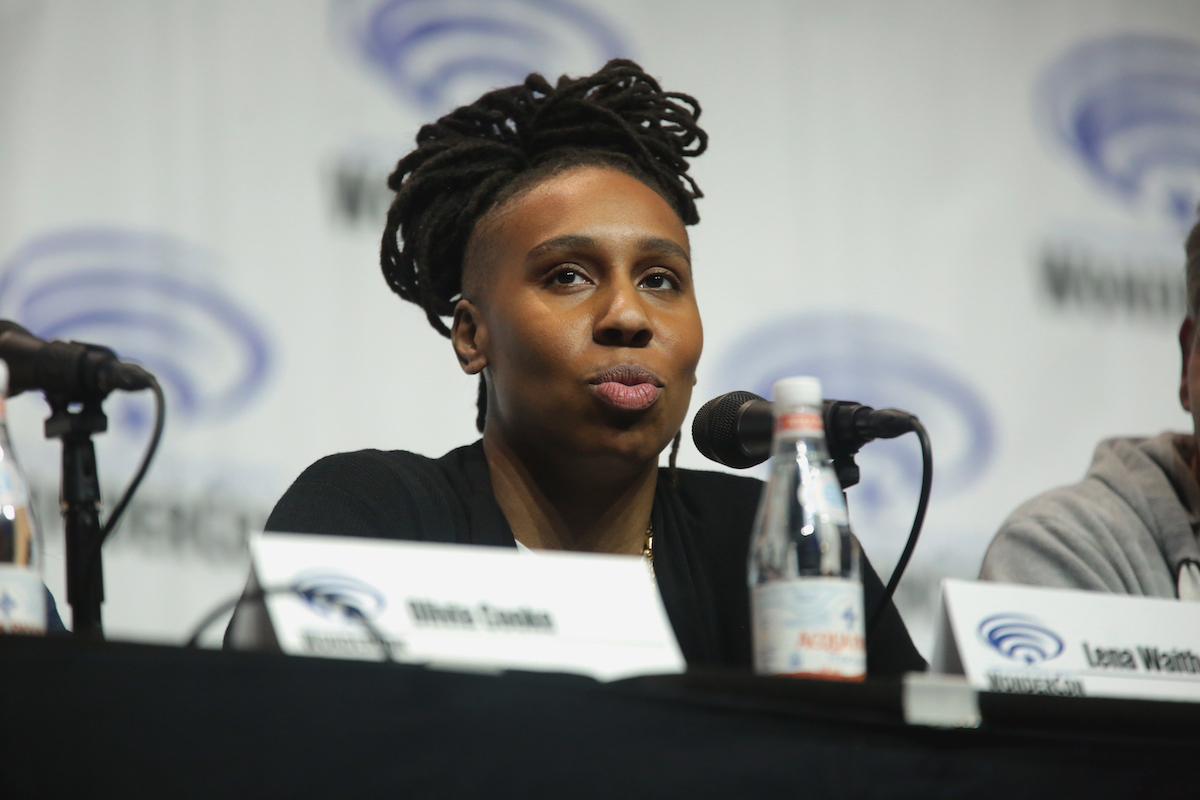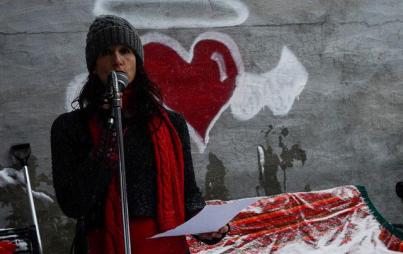
By Gage Skidmore from Peoria, AZ, United States of America - Lena Waithe, CC BY-SA 2.0, https://commons.wikimedia.org/w/index.php?curid=67931354
A study by Variety in 2017 noted that 80% of showrunners were male, and 90% were white. Maybe that’s why the industry is leading the charge when it comes to equality.
More women are in writers’ rooms, more series feature female leads, and more women are finding work behind the camera. Women like Tanya Saracho (Vida), the first Latinx female showrunner in the premium cable space; Lena Waithe (The Chi), the first Black woman to win an Emmy for comedy writing; Nahnatchka Khan (Fresh Off the Boat) the Iranian-American showrunner spotlighting an Asian family on network TV; Julie Plec (The Vampire Diaries, The Originals) who helped transform the CW; Felicia Henderson (The Punisher); Ilene Chaiken (The L Word); Liz Tigelaar (Life Unexpected); Ayanna Floyd Davis (The Chi); and Courtney Kemp (Power) who crafted one of Starz’s biggest hits.
Learning how these women break through barriers might pave the way for future generations of females in charge so, we’ve asked this handful of TV bosses to share their stories. From being the only woman in the room to fielding period jokes and making sure there’s space for fellow female creatives, here’s what these showrunners want you to know when it comes to working in TV, or really any male-dominated industry.
Have You Ever Faced Discrimination In The Workplace?
Tanya Saracho: Even though, for the most part, I felt liked, I didn't always feel seen and respected. One time, in a [writer’s] room I liked very much, when I got feisty about a particular pitch, my boss asked me in front of the (all-male) room if I was on my period. He said it dismissively and everyone co-signed with chuckles. I remember it very vividly. So yeah, I experienced your usual amount of otherism in rooms – of pitching something and it going unheard only to have another male writer pitch it a few minutes later and it finally being understood. You feel like you're screaming underwater when that happens.
Felicia Henderson: Unfortunately, I still see too many instances of the double-standard for how women and men are treated or described when they have strong opinions. Men are passionate, creative, genius for standing their creative ground. Women are tough, difficult, emotional for doing the exact same thing. I had lunch with a development exec about a year ago who told me, with much surprise, ‘You’re so nice.’ I was utterly gob smacked. I thought: ‘Why the hell is she so surprised that I’m a nice person?’ This WOMAN says to me, ‘It’s just that I heard you were really tough.’ So, it’s not only men who have different expectations of a woman showrunner. Men aren’t asked to be Mr. Congeniality when they’re running a show. However, both men and women, often expect women to be the picture of likability.
Nahnatchka Khan: I think what's way more insidious than outright hostility is being dismissed. Not being listened to or taken as seriously as some of your male counterparts. And often, the people doing it don't even realize they're doing it. For me, you just have to play through, not get louder or change who you are to ‘fit in with the guys,’ but just remain consistent in whatever point you're making, try not to get frustrated, believe in yourself, and keep working.
I think we're already seeing a ripple effect of the #MeToo movement. People are aware that there is no longer room for any kind of abuse and that actions have repercussions. Behavior that used to be tolerated as just ‘the way things are’ is being called out for what it is - an abuse of power. That's what it all comes down to. There is no free reign anymore, people are not objects to be held hostage by anyone else's emotional demands and tantrums, no matter who that person is.
Ayanna Floyd Davis: People expect for female bosses to be ‘nice,’ and sadly, this expectation can come from women as well. We can get called a ‘bitch,’ combative, angry or mean just for making decisions people don’t like. Whereas I have never heard anyone ask a male showrunner to be ‘nice.’ Ever. And that’s saying a lot considering I’ve seen some men in power act like complete fools.
You Might Also Like: Women in Media : Underrepresented, Hypersexualized and Mad As Hell
How Do You Push Forward And Make Space For Yourself?
Lena Waithe: No one in their right mind is going to say, ‘I don't want to hire that person because they're a woman or because they're black.’ What they say is, ‘Oh this person doesn't have enough experience’ or ‘We're looking for someone that's done it before.’ And if women and people of color don't get hired, they'll never gain that experience.
So, it's about fighting for people that are amazing that happen to be women or people of color. We must keep convincing networks and studios to take a chance on someone new. That goes with the territory now.
Ilene Chaiken: We need to advocate for one another, nominate one another, and be willing to back up our advocacy with reassurance. Basically say, ‘I would not have put her forward for this job were I not confident of her talent and ability.’
Liz Tigelaar: Trust your voice. Don’t let a group of older white men make you feel smaller or like you don’t matter. But also, don’t shrink yourself down. You can have a strong voice and still allow voices of others to be heard. I think mentorship is amazing. I think we as women get advocate for the young women coming up behind us. I think we can teach and protect and empower them.
Julie Plec: Hire and nurture opportunities for women at the entry level and provide support for them to rise through the ranks of these currently very male-dominated fields. Twenty years ago, someone might have said to you, ‘It’s okay to dream big.’ Ten years ago, you might have heard, ‘You can make it if you work really hard and play the game right.’ Today, I’d say, ‘Why stop at showrunner? You can own the whole goddamn network.’
Courtney Kemp: I like to be right on the facts and keep it unemotional. When I'm in the right, I let it speak for itself. I think you can't tell someone they are racist or sexist, you have to SHOW them. Show them that the reason they hate you is irrational, the reason they disagree is bias — but don't tell them. Ask questions, don't give answers.








